Photos: These are the Oval Office Designs for the Past 14 Presidents
The Oval Office has gone through many design changes since its creation in 1909.
President William Howard Taft added the room when he expanded the West Wing of the White House.
According to the White House Museum, Taft chose an olive green color scheme for his office with a green rug, dark green drapes with eagle valances and olive green walls.
The original Oval Office design was used by all of the presidents following Taft. President Herbert Hoover rebuilt it in the original design after the office was gutted after the West Wing caught fire in 1929.
President Franklin Roosevelt was the first to redesign the Oval Office, and the presidents following him have redesigned the space, swapped out furnishings, switched the artwork and even chosen new color schemes, Business Insider reported.
Roosevelt kept Taft’s green theme and used Hoover’s old desk, but added armchairs, ship models, prints of the Hudson Valley, a painting of George Washington and an animal skin rug to the room.
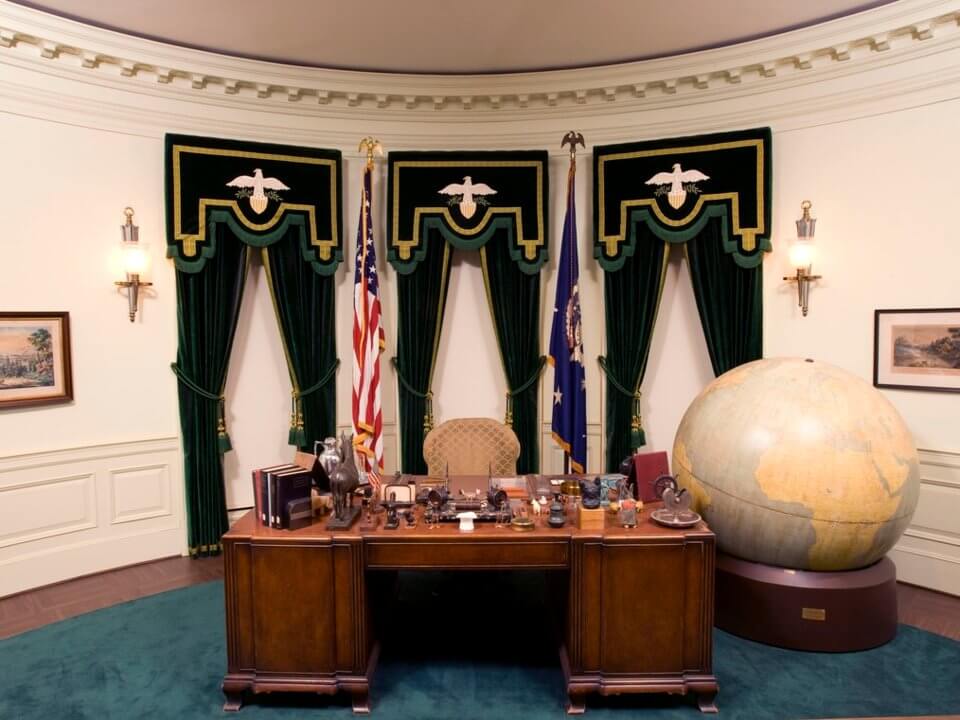
President Harry Truman had a picture of his predecessor hung on the Oval Office’s wall to commemorate him. He kept Roosevelt’s desk but changed the color scheme to blues, greens, and grays. He displayed a portrait of Washington as well as depictions of Simon Bolivar and Jose de San Martin. On his desk were plane models and a sign that read, “The buck stops here, I’m from Missouri.”
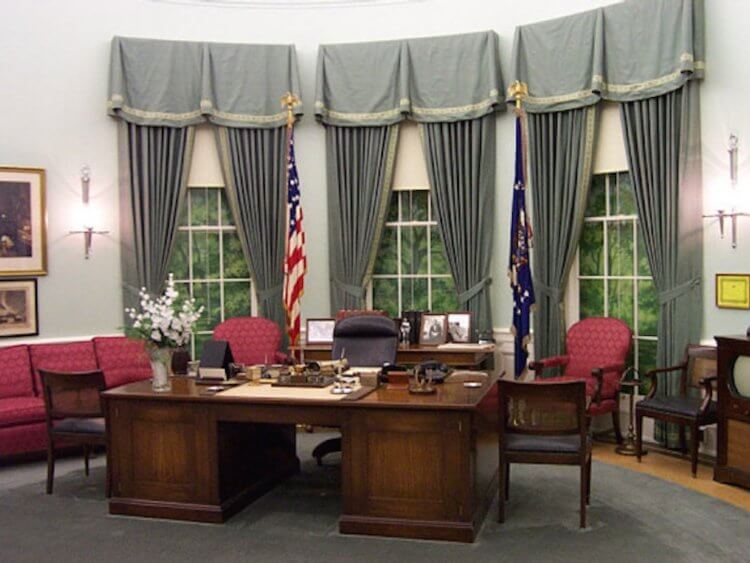
President Dwight Eisenhower didn’t change the Oval Office design and kept Roosevelt’s desk and Truman’s curtains and rug. Eisenhower added a painting of Confederate general Robert E. Lee, landscape paintings and a statue of Abraham Lincoln.
President John F. Kennedy was in the middle of redesigning the office when he was assassinated. He wanted to put in a red rug and pale curtains. A rocking chair and white sofas were put in the Oval Office, and the sconces were replaced with a brass lantern, according to Business Insider. Naval paintings and ship photos and models were also displayed.
First Lady Jacqueline Kennedy introduced the Resolute desk made out of timbers from the British ship H.M.S. Resolate to teh Oval Office. It had been given to Rutherford Hayes as a present from Queen Victoria.
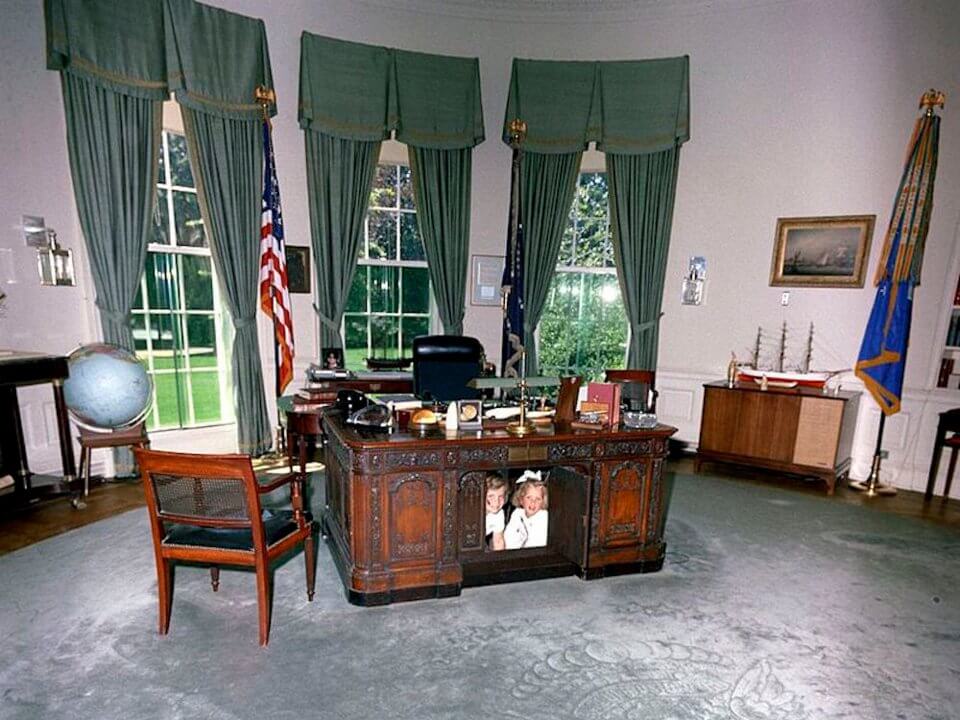
Lyndon B. Johnson reverted back to Roosevelt’s bluish green rug for his Oval Office and added the sconces back to the mantel. He used the desk that he had used during his time in the Senate and displayed a sculpture of a cowboy riding a bucking Bronco called the Bronco Buster. He also had three televisions in the room and a bust of himself displayed.
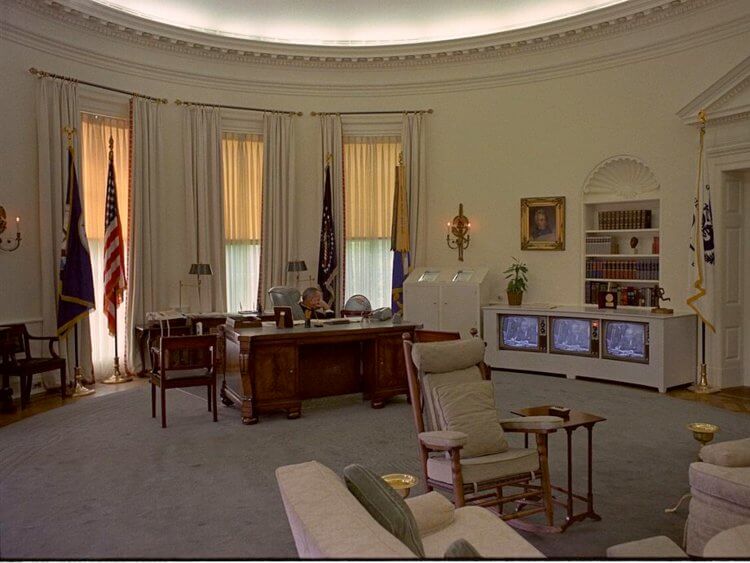
President Richard Nixon installed yellow drapes and a royal blue rug designed by First Lady Pat Nixon. He believed his desk had been used by Woodrow Wilson when it was actually Ulysses S. Grant’s vice president’s, Henry Wilson. He also displayed the photo “Earthrise” that had been taken during the 1968 Apollo 8 mission.
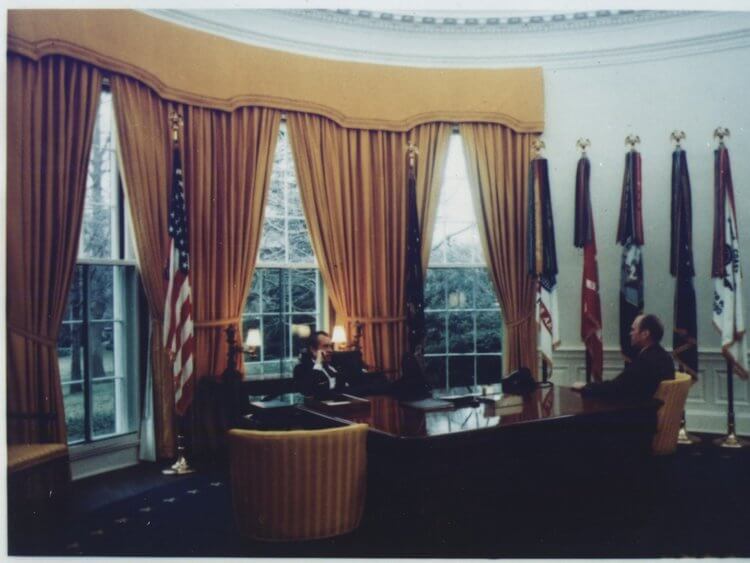
The sconces were removed, again, by President Gerald Ford who also kept Wilson’s desk. Ford installed a gold and blue floral rug and pumpkin-colored drapes, and added striped sofas. He also brought back Johnson’s Bronco Buster.
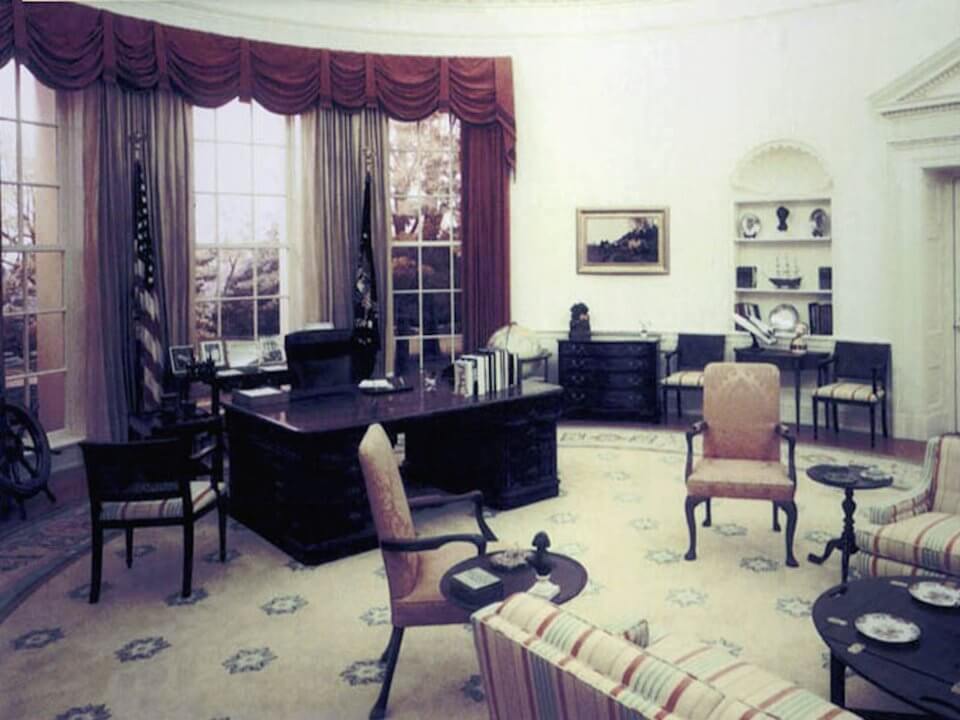
President Jimmy Carter did minimal design changes, but brought back the Resolute desk and rearranged some of the couches. He displayed busts of Truman, Jefferson and Washington, and a few ship models.
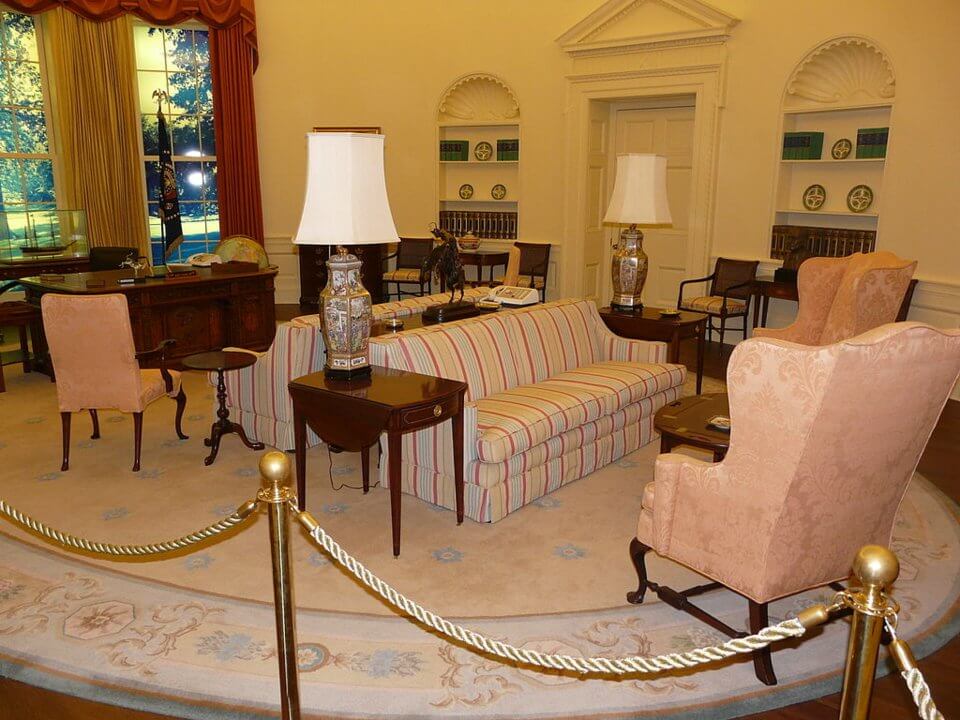
President Ronald Reagan changed the design of the Oval Office after his reelection and installed a pale gold rug with a sunbeam design. The rug was designed by First Lady Nancy Reagan. He replaced the floor and displayed pictures of his family. He kept the Bronco Buster and Resolute desk in the room and added a sculpture made by Frederic Remington titled Rattlesnake.
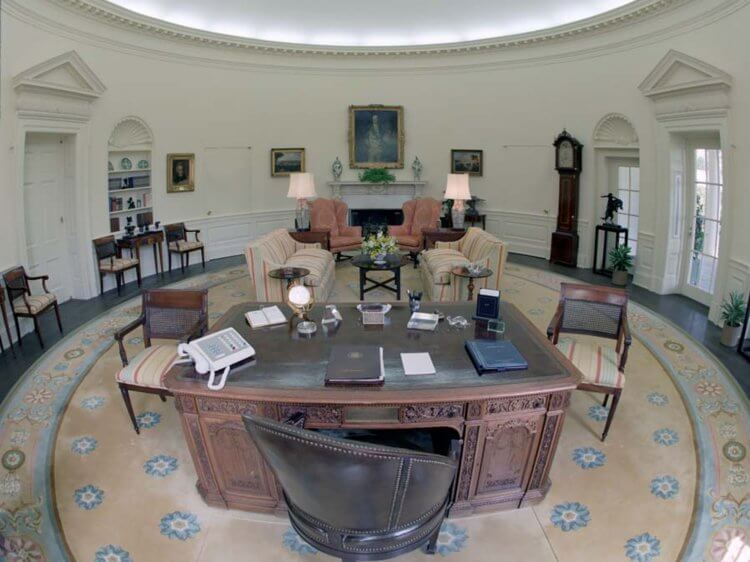
The color scheme was changed to a pale blue color by President George H.W. Bush. He brought the desk he used as vice president that was originally carved for the Chesapeake & Ohio Railway offices. For decor, Bush had various natural paintings of places like Washington and the Teton Range as well as family photos displayed.
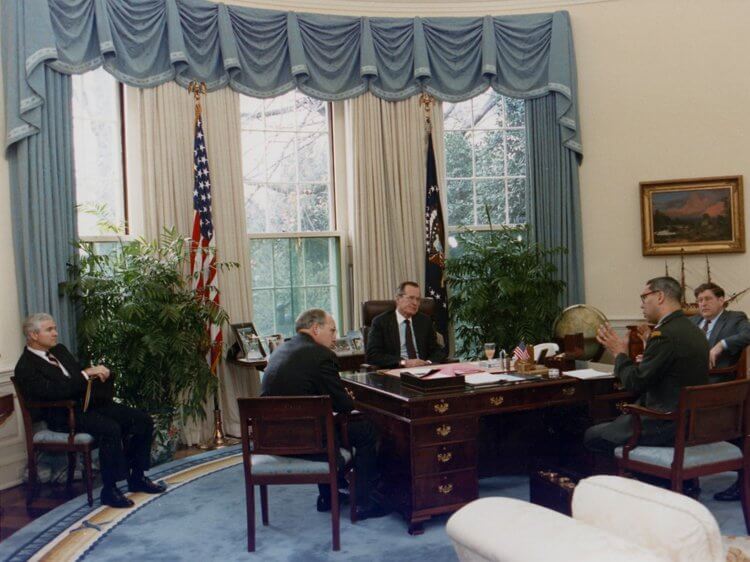
Similar to Nixon’s design, President Bill Clinton chose gold drapes and a navy blue rug. He hung paintings by Childe Hassam and Norman Rockwell, as well as a painting of African Americans waiting for the Emancipation Proclamation, according to Business Insider. The Bronco Buster and Resolute desk were both reinstalled in the office and “The Thinker” by Auguste Rodin was added.
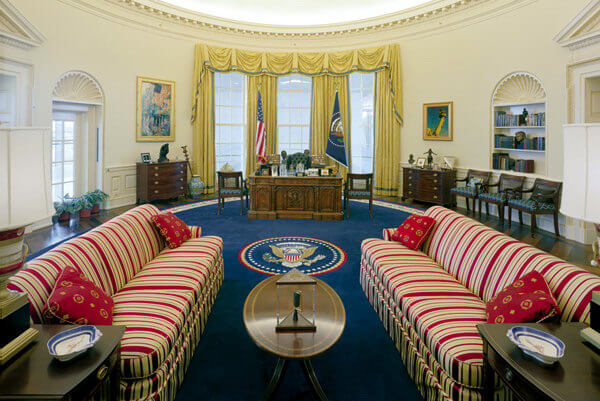
First Lady Laura Bush designed a pale gold rug with a sunbeam design for President George W. Bush’s Oval Office. Bush kept the Resolute desk and added antique gold drapes. He also displayed a bust of Winston Churchill that was lent to him by the U.K. Prime Minister after 9/11.
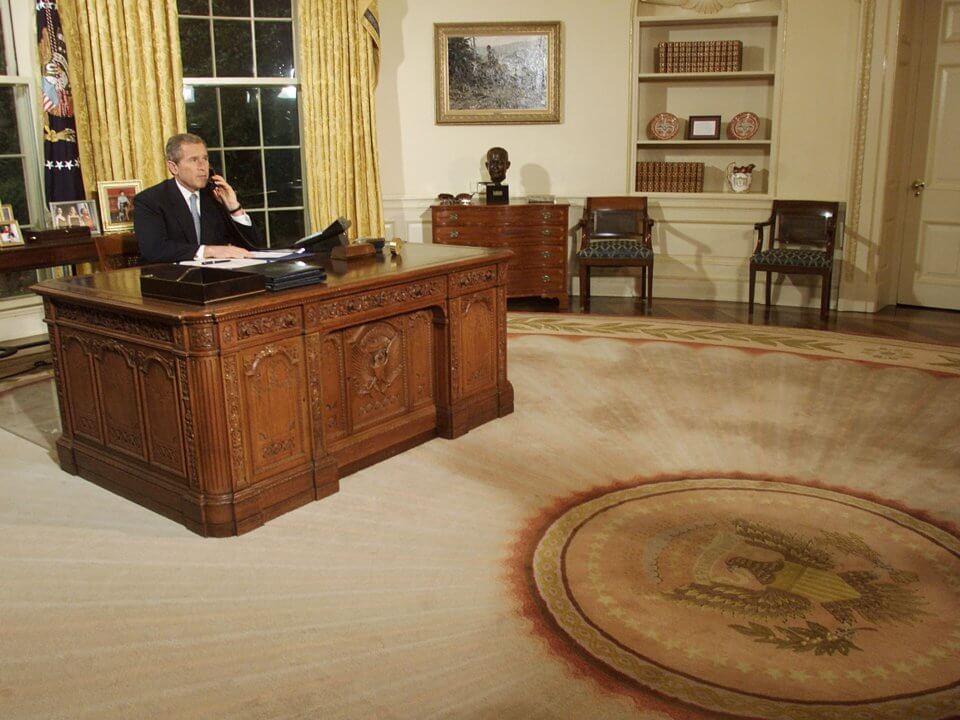
President Barack Obama installed a beige rug with quotes from Abraham Lincoln, Teddy Roosevelt, FDR, Kennedy and Martin Luther King Jr. on it. He also kept the Resolute desk and displayed a copy of the Emancipation Proclamation and a program from King’s “I Have a Dream” speech. The busts Obama displayed were of King and Lincoln.
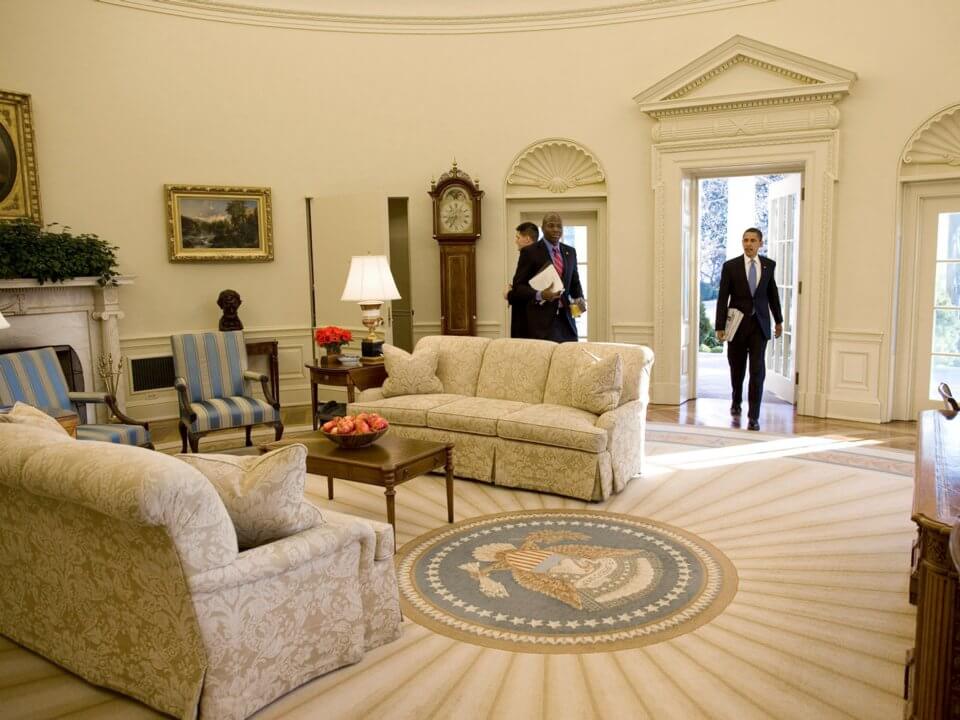
The current Oval Office under President Donald Trump uses a blend of the designs from the past presidents. He uses the Resolute desk, George W. Bush’s couches, Reagan’s rug, Clinton’s gold drapes and The Bronco Buster is still displayed. Portraits of Washington, Lincoln, Thomas Jefferson and Andrew Jackson are hung on the wall. He also has pictures of his parents and a 1987 letter from Nixon.
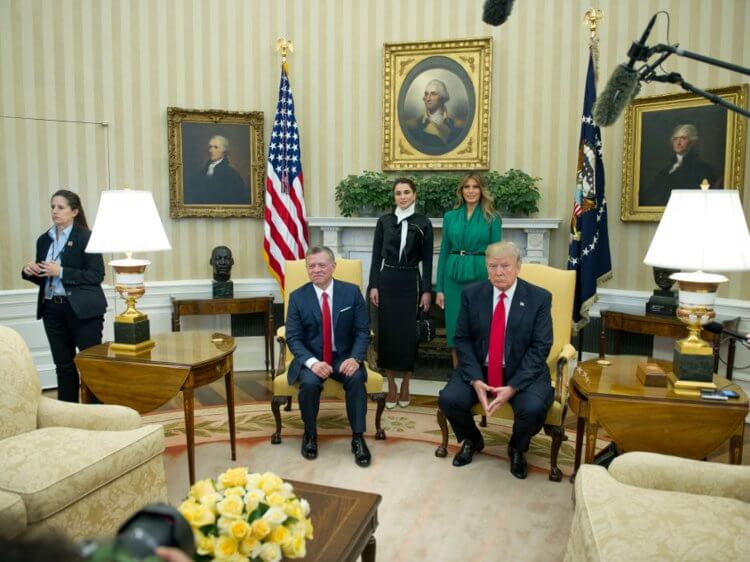
White House officials reportedly said that the Trump administration had to spend $3.4 million to redesign the office to restore its “luster” and “glory” after the Obama administration, The Guardian reported.
Truth and Accuracy
We are committed to truth and accuracy in all of our journalism. Read our editorial standards.
Advertise with The Western Journal and reach millions of highly engaged readers, while supporting our work. Advertise Today.












